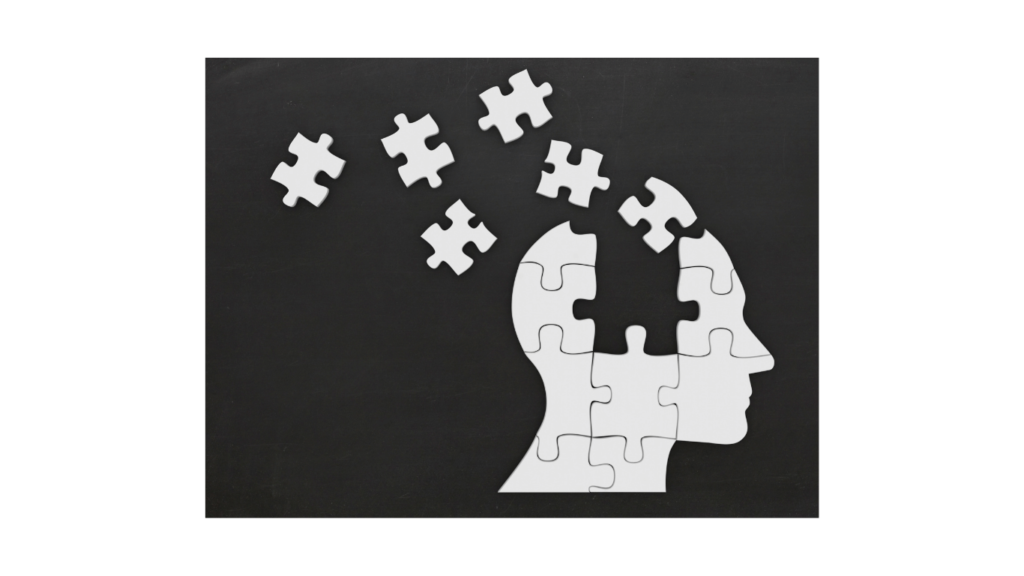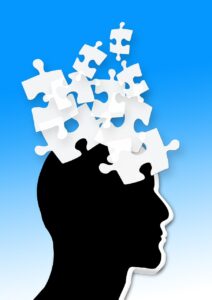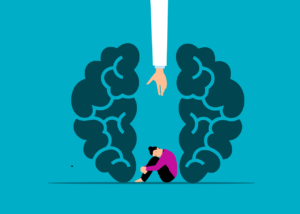In our high-stress world, many individuals are experiencing moments or even prolonged periods where their mental clarity seems obscured, a phenomenon commonly referred to as "brain fog." This state of limited cognitive function can affect memory, understanding, and concentration, leading to a significant decline in daily productivity and overall quality of life.
But what exactly is behind this foggy feeling in our heads? This article dives into the scientific underpinnings of brain fog and limited cognitive function, unraveling the complexities of our brain's operations and offering insights on how to navigate through the mist.
Understanding Brain Fog: An Overview
Brain fog is characterized by a cluster of symptoms that impact an individual's cognitive capacities, creating a sense of mental haze or cloudiness. Those who experience this condition often describe difficulty in focusing, forgetfulness, and a general feeling of being mentally sluggish or disoriented.
It's crucial to understand that brain fog is not a diagnosis in itself but rather a symptom or collection of symptoms indicative of an underlying issue. The reasons behind this cognitive haze can be numerous and varied, making it a challenge to pinpoint a singular cause.
Factors such as stress, nutritional deficiencies, sleep disturbances, and certain medical conditions have all been associated with the onset of brain fog. The condition acts as a signal, suggesting that something within the body or mind is out of balance. To truly grasp the concept of brain fog, one must delve into the intricacies of cognitive function and the potential disruptors that can hinder the brain's performance.
By recognizing the signs and understanding the potential contributors, individuals can take the first steps toward clearing the fog and improving their cognitive health.
The Science Behind Cognitive Function
Cognitive function is the collective term for the brain's ability to process information, remember, think, solve problems, and make decisions. This complex suite of mental activities is powered by the brain's network of neurons and the neurotransmitters that facilitate communication between these cells.
Different areas of the brain are responsible for various aspects of cognition. For instance, the prefrontal cortex is pivotal for decision-making and problem-solving, while the hippocampus plays a crucial role in memory formation and retrieval.
Neurotransmitters such as dopamine and serotonin influence mood and thought patterns, and their imbalance can affect cognitive clarity and function. The interaction between neurotransmitters and neurons is delicate; any disruption in this balance can lead to cognitive difficulties. Environmental factors, lifestyle choices, and internal imbalances can all influence neurotransmitter activity and, by extension, cognitive function.
Understanding this intricate system is key to recognizing how various factors can lead to cognitive impairments, such as brain fog. Addressing these root causes can help restore neurotransmitter balance and neuron function, thereby enhancing cognitive abilities. This insight into the biological foundations of cognition underlines the importance of maintaining a healthy brain environment for optimal mental performance.
Common Causes of Limited Cognitive Function
Numerous elements can contribute to diminished cognitive abilities, ranging from lifestyle habits to health-related issues. One major factor is inadequate sleep, which impairs the brain's capacity for memory consolidation and efficient information processing.

Nutritional gaps, especially in essential nutrients such as omega-3 fatty acids, B vitamins, and antioxidants, directly influence how well our cognitive functions perform. Chronic stress plays a significant role too, releasing cortisol into the system, a hormone that can negatively impact cognitive performance when present in high levels over time.
Certain medical conditions are also at the forefront of causing cognitive limitations. Hypothyroidism, for example, affects the body's metabolism, which can lead to feelings of mental sluggishness or brain fog. Similarly, mental health disorders like depression can contribute to a decrease in cognitive clarity, making it challenging to concentrate or remember important information.
Chronic fatigue syndrome, characterized by extreme, persistent tiredness, is another condition that can lead to cognitive difficulties. Each of these factors, alone or in combination, can significantly hinder an individual's cognitive capabilities, underscoring the importance of identifying and addressing them to improve cognitive function.
Recognizing the Symptoms of Brain Fog
Identifying the presence of brain fog involves closely observing a range of cognitive and emotional indicators. Cognitive symptoms often manifest as a noticeable decrease in concentration ability, the emergence of confusion in everyday situations, and an increased tendency to forget names, dates, or tasks.
Individuals may also experience a significant reduction in mental clarity, feeling as though they are unable to see through a haze when trying to focus or make decisions. Additionally, there may be a perceptible slowdown in how quickly one can process information, further complicating tasks that require quick thinking or multitasking.

Physical symptoms frequently accompany these cognitive signs, adding another layer of complexity to the experience of brain fog. Common physical manifestations include enduring fatigue that is not alleviated by rest, headaches that can range from mild to severe, and disturbances in sleep patterns—either struggling to fall asleep or waking up feeling unrefreshed.
These symptoms not only highlight the multifaceted nature of brain fog but also underscore the importance of paying attention to our body’s signals. By acknowledging these indicators early on, individuals can better understand the potential underlying causes of their cognitive haze and take proactive steps toward alleviating their symptoms.
Scientifically Proven Strategies to Combat Brain Fog
Addressing brain fog involves a holistic approach that encompasses various aspects of lifestyle and wellness practices. Key to combating this cognitive haze is the prioritization of sleep quality, which fosters memory consolidation and mental clarity.
Embracing a balanced diet that emphasizes nutrients crucial for brain health, such as omega-3 fatty acids, antioxidants, and B vitamins, can significantly enhance cognitive functions. Regular engagement in physical exercise not only improves blood circulation to the brain but also supports the maintenance of neuron health and cognitive abilities.
Mindfulness and meditation techniques offer a powerful tool for stress reduction, directly impacting the alleviation of one of the primary contributors to brain fog. Additionally, maintaining optimal hydration and moderating the consumption of substances like alcohol and caffeine are practical steps that aid in clearing cognitive cloudiness. These strategies, rooted in scientific research, pave the way for not only dissipating brain fog but also for fostering a more vibrant, alert, and cognitively resilient state of being. Incorporating these habits into daily routines can lead to significant improvements in mental clarity and cognitive function, ultimately lifting the veil of brain fog and restoring a sense of mental sharpness and focus.
The Role of Cognitive Training and Brain Games

Cognitive training and the utilization of brain games serve as essential tools in enhancing mental acuity and combatting the symptoms associated with brain fog. By actively engaging in exercises that test and expand cognitive skills such as memory, attention span, and problem-solving abilities, individuals can stimulate the brain's capacity for neuroplasticity. This term refers to the brain's remarkable ability to reorganize itself by forming new neural connections throughout life. Regular participation in these mentally stimulating activities encourages continuous growth and strengthening of the brain's cognitive functions.
Research suggests that cognitive training can lead to measurable improvements in cognitive abilities that might be hindered by brain fog. Activities that challenge the brain, from puzzles and strategy games to more structured computer-based cognitive training programs, provide a varied and comprehensive approach to brain health. It is also worth noting that the diversity and complexity of these tasks are key to their effectiveness.
Engaging in a broad range of cognitive exercises ensures that different areas of the brain are targeted, promoting overall cognitive resilience and flexibility. This proactive engagement in cognitive strengthening activities is a valuable strategy for individuals looking to clear the haze of brain fog and sharpen their mental faculties.
When to Seek Professional Help
Navigating the murky waters of brain fog can often be managed through lifestyle modifications and strategic cognitive exercises. However, there are instances when these efforts may not yield the clarity and cognitive improvement one seeks. In such situations, it becomes essential to consult a healthcare professional. Persistent brain fog, especially when it's severe enough to interfere with daily activities or is accompanied by other worrying symptoms, warrants a deeper investigation.
Medical conditions that lie beneath the surface, such as mental health disorders, thyroid problems, or chronic fatigue syndrome, might be at the root of ongoing cognitive challenges. A thorough evaluation by a healthcare provider can uncover these underlying issues, facilitating a targeted approach to treatment. It's important to approach this step without hesitation, as timely medical intervention can significantly enhance quality of life and cognitive health. Seeking professional guidance is a critical step towards dispelling the fog and regaining mental clarity.






